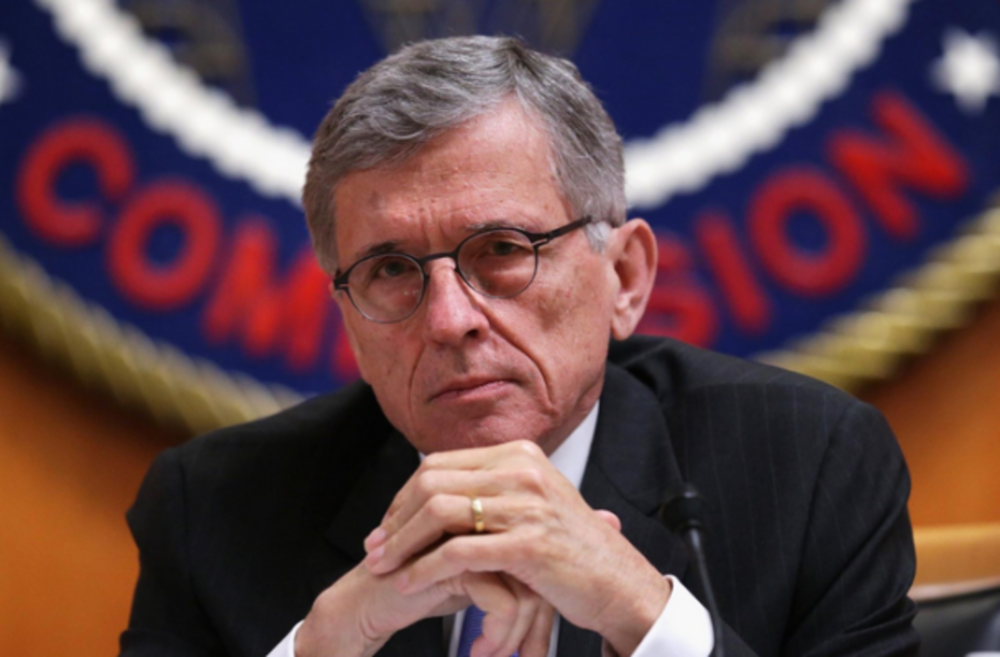Marketers who use text messages and automated phone calls are fretting that the Federal Communications Commission’s recent order interpreting the Telephone Consumer Protection Act of 1991 (TCPA) will hurt consumers more than it will help them. Two trade associations have filed petitions in appeals court challenging the ruling, and corporate defense attorneys fear an increase in class action lawsuits.
In releasing the order, FCC Chairman Tom Wheeler (above) wrote, “Today we help Americans hang up on nuisance calls,” adding that unwanted “robocalls” and texts were the agency’s largest complaint category last year with more than 215,000 filings. But Commissioner Michael O’Rielly, who voted against the order, called it a “farce” and an “unfathomable action” that expands the scope of TCPA.
O’Rielly expressed concern that the order will put an end to important communications that consumers have expressly consented to receive from companies, especially those that provide an undeniable public service. Among these he numbers alerts that a child failed to arrive at school, product recalls, health care warnings, and financial alerts for such things as bank overdrafts. He strongly protested the orders applying to text messages. “The TCPA was enacted in 1999, before the first text message was ever sent,” he wrote.
Immediately following the ruling’s release on July 10, petitions challenging the FCC’s authority were filed in appeals court by the Professional Association for Customer Engagement and the Association of Credit and Collection Professionals. Both take issue with the FCC’s broad definition of what constitutes an “autodialer.”
“If you have a software system with an autodialer option, that’s now deemed an autodialer in the FCC’s ruling. That contrasts with other courts that have said you can’t make a case about something that may be done in the future. You have to look at how the calls are currently being made,” said Christine Reilly, a partner in Manatt, Phelps & Phillips who defends companies in TCPA suits.
TCPA defines an autodialer as a machine dialing a number without human intervention. Reilly says the FCC ruling takes a strict constructionist position on the definition, placing texting apps smartphones with autodial functions under it. “I had a client ask me if he should go out and buy some rotary phones,” quipped Reilly.
The other sensitive issue in the FCC order concerns reassigned numbers. In his opinion, Wheeler mentioned a consumer who’d gotten a new cell phone number and received 27,809 unwanted text messages over 17 months. Marketers agree that such incidences are egregious and should be corrected. What they take issue with is the amount of leeway the FCC has given them to make things right. It grants them a one-call exception on an unwanted message before they become liable for penalties. The problem is that the language of the order states one call, not one engagement with a consumer or one reaction to a complaint.
“Give us a chance to get it right. How do we comply with a rule when we have no way of knowing a number’s been reassigned. That database does not exist,” Reilly said. “This one-pass rule—it’s terrifying to think of what kind of class actions will come as a result of it.”
Not to worry, according to attorney Jay Edelson. The Chicago-based class action attorney who has taken the likes of Apple and Google to the wall predicates his game plan largely on a TCPA stipulation that allows cell phone owners to sue for up to $1,500 per unwanted contact. Presented with Reilly’s concerns by Direct Marketing News, he said marketers need not fear an incremental rise in lawsuits.
“I don’t see the FCC order as a change in the law. It helps verify a number of issues, meaning that we’re not going to have to waste time litigating the gray areas of the law. It even exempted a number of text messages, such as those sent by health care and financial institutions,” Edelson said.
Edelson had little sympathy for businesses griping about the one-pass rule for reassigned numbers. “What responsible marketers do is scrub the lists. It’s an automated procedure. It takes no time and it avoids all the hassles,” he said. “The thing is, the industry continues not to get consent. That’s on them and it’s easy to do.”
Marketers are not likely to agree that gaining consent is easy, however, and FCC Commissioner O’Rielly doesn’t agree that the agency’s action won’t provoke more court actions. “It will lead to more litigation and burdens on legitimate businesses without actually protecting consumers from abusive robocalls made by bad actors,” he commented.







